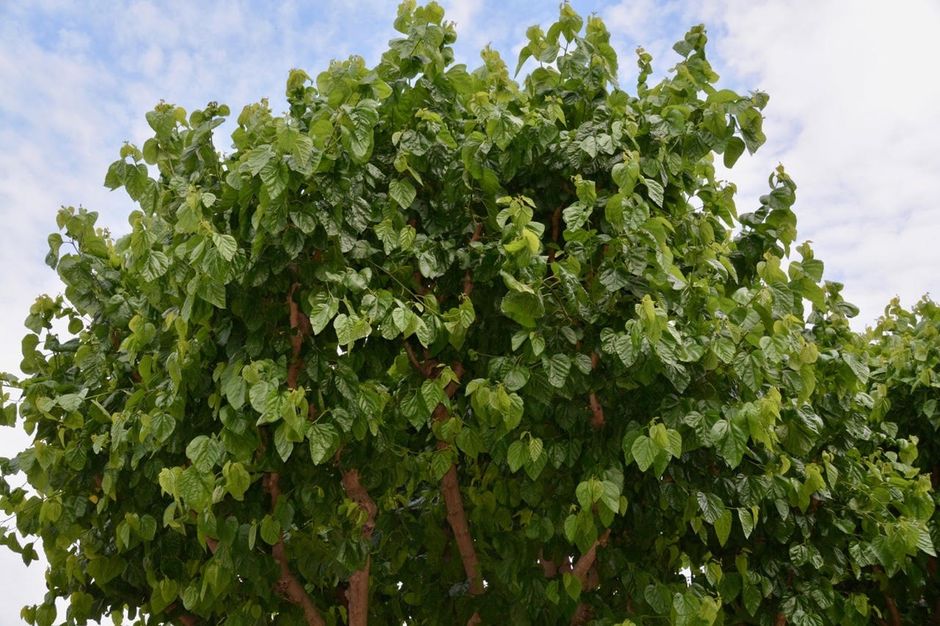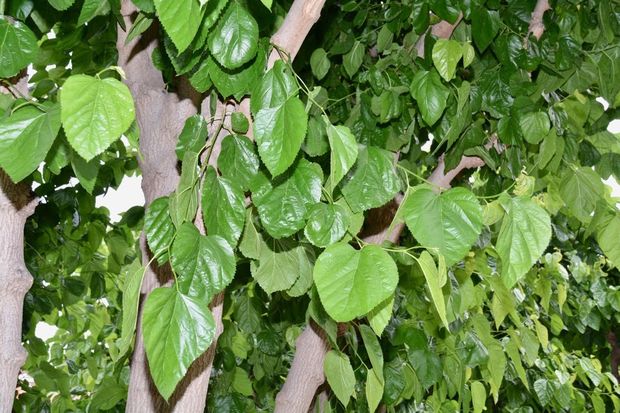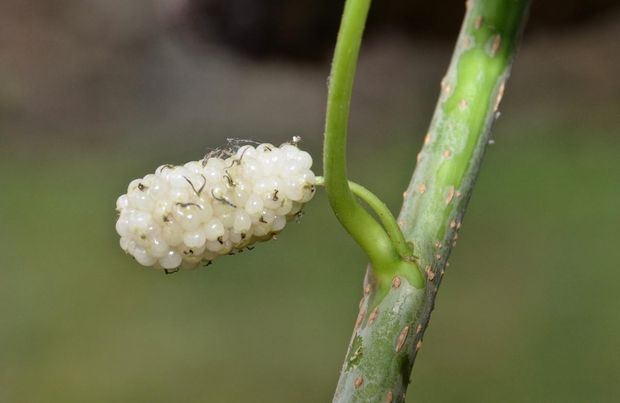The mulberry tree appears in 2 Samuel 5:23-24 and 1 Chronicles 14:14-15.
 The mulberry tree. / Antonio Cruz..
The mulberry tree. / Antonio Cruz..
Therefore David enquired again of God;
and God said unto him, Go not up after them;
turn away from them, and come upon them over against the mulberry trees. (1 Cr. 14:14 KJV)
The Hebrew term beka’m, which appears in 2 Samuel 5:23-24 and 1 Chronicles 14:14-15, and which some versions of the Bible translate as “poplars”, refers in fact to the mulberry tree.
They are trees belonging to the Morus species, one subspecies of which, the white mulberry (Morus alba), is located to the north west of Israel.
Some scholars believe that the Greek word sykaminos, which appears in Luke 17:6 and which some versions render as “sycamore”, refers to the “black mulberry” (Morus nigra). [1]

[photo_footer] Photo: Antonio Cruz. [/photo_footer] Both the White mulberry (Morus alba) and the black mulberry (Morus nigra) belong to the Moraceae family, which are trees that reach a height of 15 metres. The leaves are green and shiny and are 20 cm long.
Those of the white mulberry are the main food-source for silkworms (caterpillars of the Bombyx mori butterfly, bred to obtain silk from its buds). They contain infructescence or white berries (sorosis) which measure about two and a half centimetres.
Their taste is insipid, and they are inedible, whereas the berries on the black mulberry tree are edible and sweet. All mulberry trees are native to the mild regions of central and eastern Asia, though they were introduced into Europe and America as ornamental species.

[photo_footer] Photo: Antonio Cruz. [/photo_footer] The fact that the white mulberry blossoms late, in April or May in the northern hemisphere, was used as a negative example by the theologian John Prime (1550-1596), in a commentary on the words of the psalmist: “Though I walk through the valley of the shadow of death I will fear no evil, because you are with me; your rod and your staff will comfort me” (Psalm 23:4):
“My good listeners, take note of this lesson. I implore you, in all the circumstances of your life, be they happy or disheartening, to let this psalm serve as an example to all those who feel crushed by the faintest mist on the horizon, or the most insignificant cloud in the sky; dubitative, volatile and unstable human beings, behaving like the mulberry tree, which do not sprout any green shoots until the bad weather is entirely gone; people who enjoy being mere spectators, and remaining neutral and indifferent to everything; who (…) never risk anything, who never dare to take an active part in anything, nor to undertake any action in the name of their God, of their king or of their country, until they can be absolutely certain which side will win; and who should feel ashamed as they consider the example of David in this psalm”. [2]
[1] Balz, H. y Schneider, G., Exegetical Dictionary of the New Testament vol. II
[2] Spurgeon, C. H. The Treasury of David.

Las opiniones vertidas por nuestros colaboradores se realizan a nivel personal, pudiendo coincidir o no con la postura de la dirección de Protestante Digital.
Si quieres comentar o